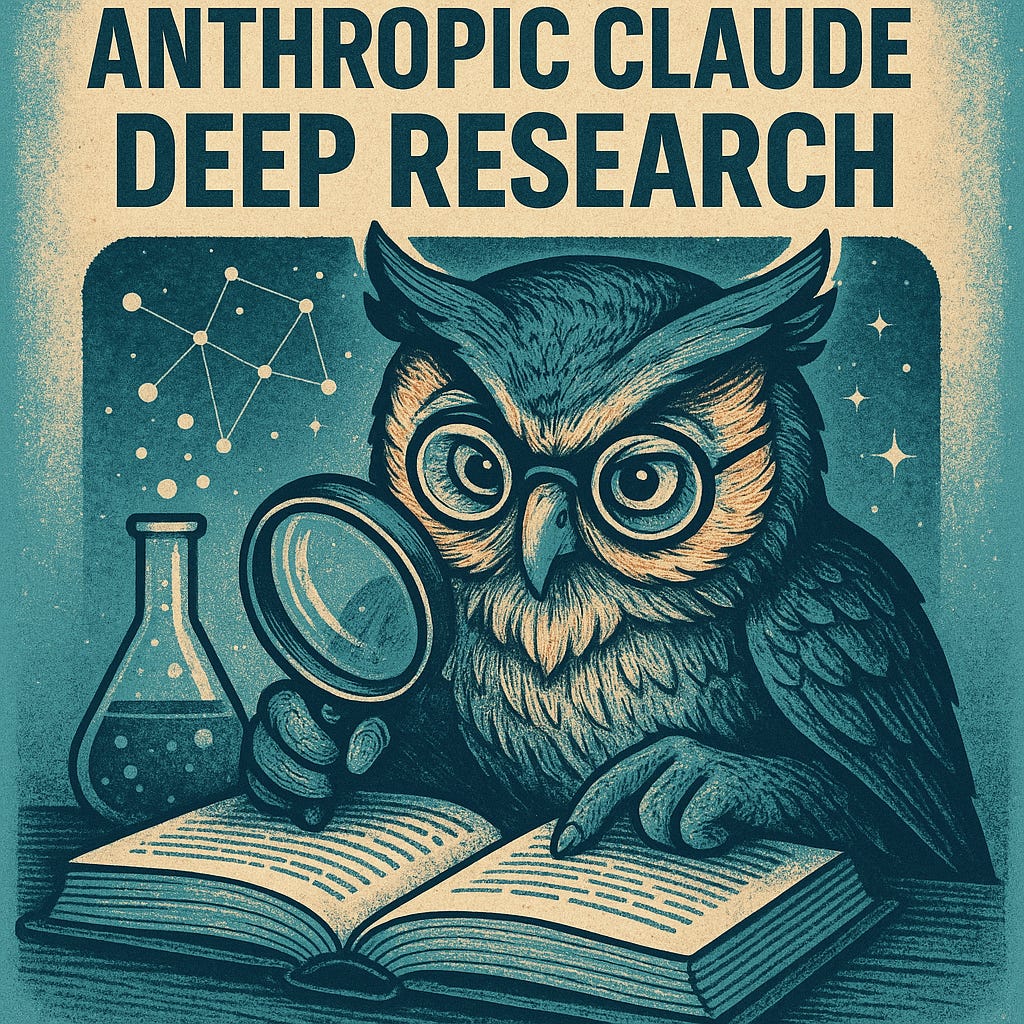Claude Enters the Deep Research Arena
My consulting clients used to pay me the big bucks to connect dots between obscure regulations – now Claude does it faster than I can expense my coffee.
Last week, I got my hands on something I've eagerly anticipated: Claude's new deep research capability (yes - I forked over the fee to subscribe to Claude Max!). After months of watching OpenAI and Google dominate this space, Anthropic has officially thrown their hat in the ring and arrived with force.
For those of you who've been following my work, you know I've been extensively testing both OpenAI's Deep Research and Google's Deep Research features. These tools have fundamentally changed how I approach complex analysis tasks for clients. Now Claude has joined the competition, and the timing couldn't be better.
The feature is available only to Max subscribers, which makes sense given the computational resources required. While some might balk at the premium tier requirement, it's a small price for what you're getting. In my initial testing, Claude's deep research has delivered in-depth, citation-rich analysis that rivals and sometimes surpasses its competitors.
What struck me immediately was the depth of synthesis. Where traditional AI might give you surface-level summaries, Claude's deep research digs into nuances, connects disparate sources, and presents findings with the kind of contextual awareness I'd expect from a senior analyst. The tool doesn't just gather information; it genuinely analyzes it.
I've already put it through its paces on a particularly complex legal research project for a client. We needed to understand the implications of recent regulatory changes across multiple jurisdictions, something that would typically take our legal team days to compile. Claude's deep research delivered a comprehensive analysis in about 30 minutes, complete with relevant case citations, regulatory cross-references, and practical implementation considerations. The client's legal team was, frankly, blown away (as was I!).
This represents a paradigm shift in how we approach research-intensive tasks for business users. Whether you're conducting market analysis, competitive intelligence, technical documentation review, or regulatory compliance research, deep research capabilities compress weeks of work into hours. When considering the hourly rates of the professionals these tools augment, the ROI calculation practically writes itself.
What sets Claude apart in this space is its apparent understanding of context and nuance. In my legal research example, it didn't just pull relevant statutes; it understood the interplay between different regulatory frameworks and identified potential conflicts we hadn't even considered. This level of sophistication moves beyond simple information retrieval into genuine analytical support.
I'm planning a comprehensive benchmarking article where I'll put all three deep research tools through identical complex queries across various domains. I'll measure the outputs' accuracy, completeness, citation quality, and practical applicability. Based on my preliminary testing, I expect some surprising results.
The democratization of deep research capabilities marks a turning point for knowledge work. Small firms now have access to analytical capabilities that were previously the domain of large consultancies with dedicated research teams. Solo practitioners can compete on a more level playing field. And enterprises can dramatically accelerate their strategic decision-making processes.
If you haven't explored deep research tools yet, Claude's entry into this space might be the perfect opportunity to start. The business applications are virtually limitless, and the competitive advantage for early adopters is significant.


